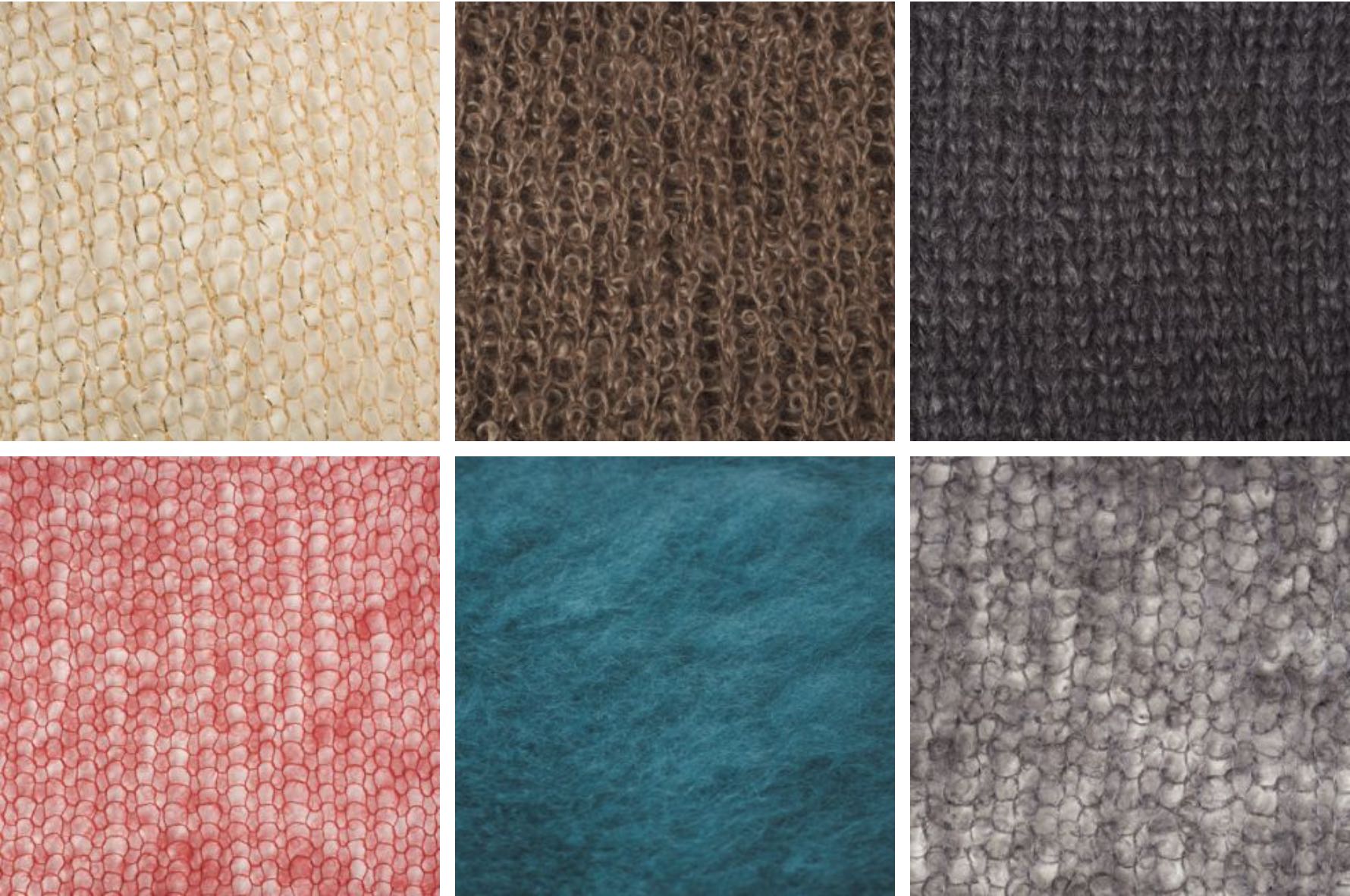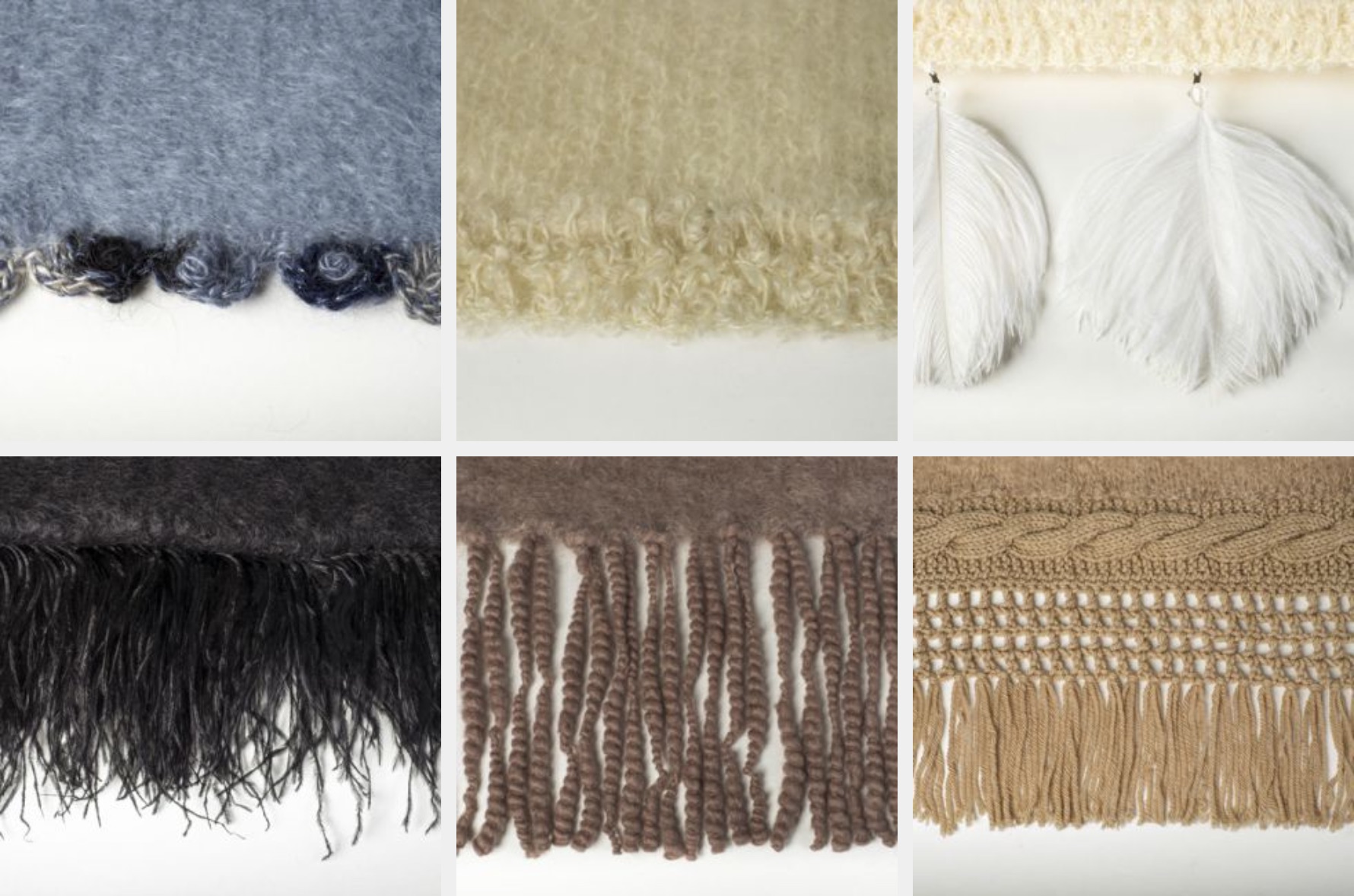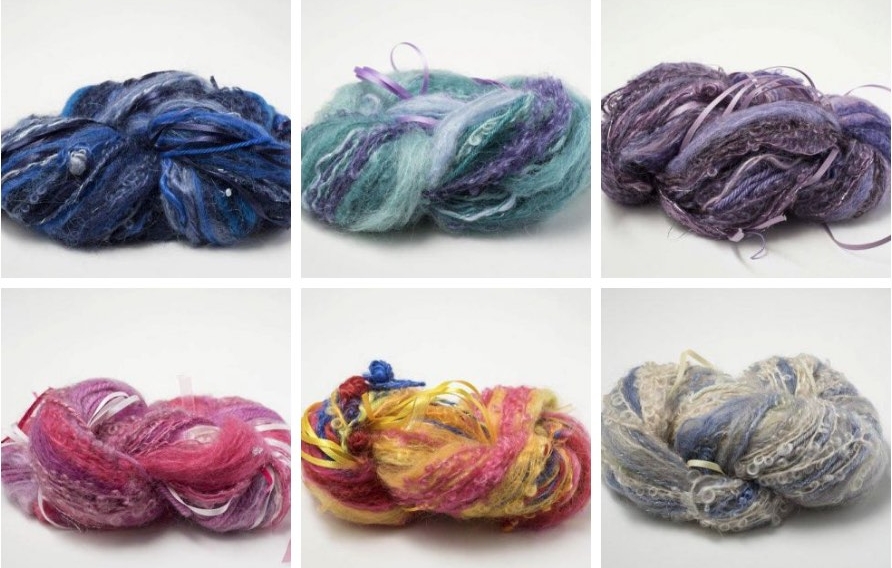Successful businesses are often inspired by the passion of their founders, and in the case of Adèle Cutten, founder of Adèle’s Mohair, it was a passion for transforming sought-after natural fibres like Mohair, Wool, Silk and Alpaca, into beautiful yarns. Today, her company produces a wide range of yarns with interesting colours and textures, together with beautifully crafted end-products, all the while adding value to the lives of the people involved in the process.
LoA found out more about this fascinating entrepreneur who is making a real difference to people’s lives in so many ways.
What inspired you to start your business?
The inspiration for my business came from my travels through the British Isles soon after graduation. I visited the woolen mills in Scotland and saw traditional Welsh weaving and Tweed made on hand looms on the Isle of Harris. What really sparked my imagination, however, was the work of an old woman living in a simple croft on the Isle of Harris. She was the official Queen’s weaver of Tweed. She collected her wool off the fences; carded, spun, washed and dyed it with natural dyes and then wove the most incredible Tweed. On return from my travels, I acquired a spinning wheel and learned the craft. Like the old lady of the isle, I was inspired to never make the ordinary, but to add real value to my craft. This has continued to be my goal.
"Adèle’s Mohair is so much more than a workshop making beautiful yarns and finished items; it’s about a creative process that is allowed to flow, and it uses many hands to achieve this."
Tell us about your entrepreneurial journey
I dreamed of an ‘Aladdin’s cave’ of colour and texture and through trial and error and humorous mishaps my venture took off, belly flopped, nosedived, resurfaced, swam a little and ended up as a happy, creative workshop full of colour and design. The world of yarn and colour had drawn me into its exciting web. When I first opened the doors of Adèle’s Mohair in September 1983, it was an exploratory adventure in the field of handcrafted items. Each piece, made by myself, involved washing wool, carding by hand (manipulating the teased wool into sliver form), spinning and knitting. A few months later, members of the rural community joined me, the first being a very special person called Liz Dyakala, who is working with me again after a 15-year hiatus. She left my employ, just prior to the general election that ushered in the new South Africa. The rural areas were in an upheaval, deterring busloads of tourists, and the business went through a bad trading period. Today, three original staff members are still with the business. Mavis Bhula has been with Adèle’s Mohair for 30 years. Her daughter started in the farm crèche opened to assist the working mothers. Jeanette Pase has given her daughter the opportunity to be educated, a privilege she never had. Over the years, many rural women have joined our venture and gained valuable skills. I am proud of their achievements. Some have moved on to grow their lives, validating the time we invested in them. Some have stayed and given the business the best years of their lives. They have raised and educated their children and given them opportunities that they had never had.
Initially, we stayed authentic to the natural colours of the wool from sheep and the Mohair from the Angora goats but colour called and I began experimenting with natural dyes. With drums of rotting onion skins, beetroot and geranium leaves and with the help of natural fixatives, I dyed the yarn. My family were up in arms over the smell and the changing colours of the cooking pots in the kitchen, so I created a new space for production. My children dubbed me “the wicked witch” as I stirred my bubbling pots of dubious brew. Eventually, I realised that I was using too much natural material and expansion would denude the environment. I switched to artificial dyes. Today we use dyes that are strictly tested and accepted in the EU. I was now doing a giddy dance to the opportunities of a new world of colour. Having mastered the art of dyeing, I trained Liz and she has since passed this legacy on to the younger women at the workshop.
The hand knitting yarn range expanded in colour and creative composition. We evolved new, exciting and unusual hand knitting yarns by adding beads, ribbons, feathers, sea shells and grandmother’s lace. Some are still part of our ranges today. Our workshop can be compared to a children’s toy store with all the joy, colour, creativity and fun of our new yarn creations. As a rurally-based labour intensive business we can’t compete with industrial production, but we can operate in a niche market with a wider range of colours and yarns that cannot be made by industrial machines. Our ranges are more exclusive and unique. Buying MADE BY HAND is not a cheap option, but it ensures the item comes from the heart of some very special and talented person who freely and creatively plied their craft.
"We are passionate about honouring the environment and working with the natural fibres Mohair, Wool, Silk and Bamboo, makes ecological sense. We offer a wide variety of amazing colours, artistic and upcycled yarns in smaller quantities that appeal to suppliers who sell to the creative crafters around the world."



Tell us about your team and the way you work
My team members are mainly of the Xhosa tribe (like Nelson Mandela) where traditionally, the men were the politicians and the women worked in the fields. My journey has been to understand and respect their culture while trying to run a business that works for all. The women I work with are strong, united and stand up to adversity.
As a small business we are quickly affected by market forces i.e. political instability, environmental changes and natural material costs, yet we are still open and forging ahead. We live in a beautiful countryside which is ours to preserve and share. Our business is located on the eastern coast of South Africa between the two port cities of East London and Port Elizabeth. Our small 50 hectares of paradise is 3km from the sea (as the crow flies) giving us a beautiful coastal backdrop. The vegetation is natural fynbos (4000 unique species fall into this biome but not all are found on our property). Our farm forms the northernmost outcrop of fynbos. Most of our land is still in its natural state, affording me the privilege of walking my 5 dogs every evening (while I clear my head of daily business issues) a ‘back garden’ of beautiful wild flowers, bushes and birdlife. In true communal fashion we grow organic vegetables, propagate indigenous flowers, recycle kitchen waste and share with staff. This allows for extra hands to be employed to sustain local families. The worms share our harvest which brings butterflies and birds. Large trees in the garden attract nesting birds and bees complete the cycle. Many years ago the land was a working farm with many sheds and outbuildings. Today these have been converted into the workshop where we ply or craft. The women work inside or under the shade of the trees. Dyed yarns are racked outside to dry in wind and sunshine.
"We love our craft and care is taken every step of the way to ensure our products are unique and of the highest quality."
Please share your company ethos with us
We work in harmony with the local people and the environment and support and promote natural fibres. The craft of hand spinning yarns, dyeing, knitting and crocheting sets us apart from the technology of mass production. There is perfection in our ‘imperfections’ as each piece is custom made and buyers are assured that our hand-knitted yarns, home and fashion accessories will differ from anyone else’s. In a world where very little is still MADE BY HAND, weare blessed to walk the journey of transforming sought-after natural fibres like Mohair, Wool, Silk and Alpaca, into yarns with interesting colours and textures, all the while adding value to the lives of the people involved in the process. We are governed by the skills we have immediately available in our surroundings and we support local businesses. We source magnificent quality Mohair and Wool grown in the Karoo region which is a dry, inland plateau in the central region of South Africa. Here the Angora goats roam freely on vast tracks of land and are shorn twice a year. South Africa is the epicentre of the global Mohair industry. It is important that we locally beneficiate the fibre and export world-wide. We are passionate about managing waste, so we rework the ends of dye lots and spin the fluff from brushed blankets back into yarns. We create brilliantly-coloured recycled yarns by incorporating banana fibres which have been recycled from the plants and not burned as was done in the past. We also use the ends of Silk dyed for the manufacture of saris. In applying this concept, we create more jobs and supply unique yarns for hand knitters around the world. Our dyeing methods are simple, shunning all chemicals except vinegar. The farm is located near the sea and crushed shells make the soil alkali. When we release grey water into the soil, it is neutralised.
"I was inspired to never make the ordinary, but to add real value to my craft. This has continued to be my goal."
What type of products make your company and brand unique?
Our hand knitting yarns are created with care and passion and made from the finest quality natural fibres. We offer a range of 95 colours and 55 colour combinations. There is a large variety of textures and weights to meet the needs of all knitters, and the Art and Upcycled yarns inspire the creativity within the hearts of both the adventurous and more conservative knitter. Conscious of the environment, we seek to reuse and upcycle, to create by hand and to add value to everything we produce.
Good design is always simple - this is what the fashion gurus say, so our range of fashion accessory items are created to be elegant, timeless and classical. Mohair is a noble fibre, luxurious and wonderful to the touch. We believe that our accessories will enhance any outfit and add style and comfort for the wearer. We produce a wide range of fashion accessories which includes ponchos, scarves, shawls and pashminas and home accessories. Our blankets, throws, afghans and plaids are made with love and care and are available in an array of sizes, designs, trims, textures and colours.
Contact or follow Adèle’s Mohair
Why LoA loves it….
There is nothing as powerful as a woman entrepreneur who is taking her passion and turning it into a successful business, making a huge impact to the lives of others along the way. In the case of Adèle Cutten, her love of natural yarns, her passion for her local environment and the unique raw materials it produces, and her love of community and the talented craftswomen who make up its backbone, are a unique and powerful combination for a business. The fact that her business has been growing and thriving for so many decades is a testament not only to her incredible business acumen, but importantly to her never ending passion for what she does and for the people around her. --- Melanie Hawken, founder and editor-in-chief of Lionesses of Africa
















